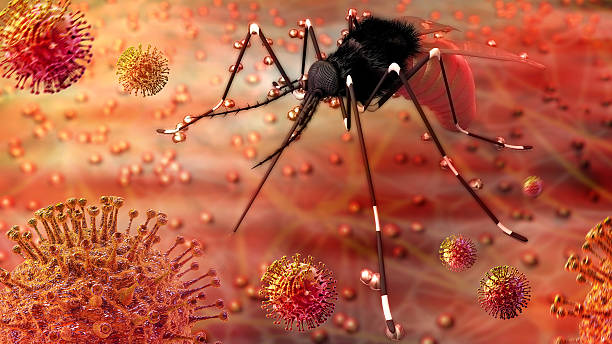By Deborah Bamisaye
“My friend, stop crying, please! This is unheard of, how could your sister just treat you like that, ha! – No, No, No! So, she just carried all that the husband of Ngozi brought for her bride price without giving you anything? Nawa o! “Do you blame her, how can I blame her, I blame myself for not having my own children, she just reminded me of my problems – (sobbing) ewoooo! Oh God, why? Tayo comforts her again. “It’s ok, it is well Sandra.
Hmmm! In the Western world, we have white people who agree before marrying each other that, they won’t be having children. Many of them do that and they stick to their plans. Such is not obtainable here in Africa at all. As a matter of fact, it is a taboo; it is never mistakenly mentioned, never! What you find on many lips is: “Children are the Heritage of the Lord…” Meaning it is God that gives children and that is a fact. Do you know it is possible to take some steps to avoid infertility challenge before marriage – steps if infertility shows up in marriage, and steps for a fruitful pregnancy and safe delivery?
We will be looking into all of these and no doubt, this edition is not enough to cover all. So, tighten your seat belts because it’s going to be a very long ride.
Tests Before Wedding Ceremony:
Before a wedding ceremony takes place, some intending couple co-habit and would only go ahead if the lady gets pregnant. Many people in the society frown at this, because of reasons we cannot discuss here. We also have people who would never attempt that but would prefer to get married before they start living together. It may interest you to know that those who belong to the first category are also running some tests indirectly – only that it is not medical and when it turns sour, what happens? Not checking for genotype is another huge risk and when there is no pregnancy after months of trying, the lady will be at the receiving end, she may become a victim of ‘use and dump.’ Her fiancé abandons her for experiment with another. Isn’t that pathetic?
Come to think of it, what medical tests could they possibly go through:
1. Undergo premarital medical tests to screen for infectious diseases (HIV, hepatitis B/C, syphilis), genetic disorders (like sickle cell anemia, thalassemia), and fertility-related issues. This helps detect hidden health problems that could affect fertility or be passed to children. Reading health magazines like PharmaTimes, choosing a healthy lifestyle and getting used to it, may in no small way help one come out clean in this regard.
2. Get fertility screenings such as hormone tests, semen analysis for men, and gynecological exams for women to identify any early fertility concerns and address them proactively.
3. Vaccinations: against infections like rubella, chickenpox and HPV before pregnancy can prevent complications that might impair fertility or harm the baby.
4. Review personal and family medical history with a healthcare provider to assess risks and receive tailored advice on fertility and reproductive health.
5. Adopt a healthy lifestyle including balanced nutrition, regular exercise, avoiding smoking and alcohol, and managing stress to optimize reproductive health is of crucial importance.
These examinations would eventually help them to plan timing for pregnancy after wedding based on medical advice, in order to ensure the body is in optimal condition before conception.
Having said that, those who consider it necessary to getting fertility and genetic tests before marriage would help prevent infertility issues and ensure a healthier family future. Premarital testing allows intending couples to:
– Identify inherited blood disorders (like thalassemia and sickle cell anemia) and genetic mutations that could be passed to children, reducing the risk of hereditary diseases.
– Assess fertility status through tests such as semen analysis for men and ovulation tests for women, helping detect potential fertility problems early enough for treatment.
– Screen for infectious diseases (HIV, hepatitis, syphilis, etc.) that can affect fertility and pregnancy outcomes, enabling timely treatment and prevention of transmission.
– Understand blood group compatibility, including Rh factor, to avoid pregnancy complications.
– Make informed decisions about family planning and take preventive measures where risks are identified.
Premarital fertility and genetic testing provide crucial information that helps couples prepare physically and emotionally for marriage and parenthood, minimizing health risks for themselves and their future children. It’s best to do these tests at least three to six months before the wedding to allow time for counseling and any needed interventions to prevent infertility, helping to ensure a healthier reproductive journey.
Risks for Africans
This is Africa, not just Africa but Nigeria, this kind of tests may cause some problems.
In all honesty there are risks involved. Premarital fertility and genetic testing are valuable tools but should be approached with counseling and support to address emotional, ethical, and social implications. Also, heeding health advice offered after testing could be very helpful.
Kindly note that even if intending couple chooses to get married without these tests, they may have only ‘carried them over;’ not because of impending infertility but because some of the tests are even required when they see the doctors during pregnancy. So, doing them in advance may be of great benefits. It may also be taken as a form of medical checkup, just a normal routine. Life itself is a Risk, so taking the risks before time may be wisdom in its own right.
In the medical space, there are arguments for and against pre-marital fertility tests, joining in this conversation are some notable doctors. Want to know what they’ve got to say? Here:
– Prof. Oluwarotimi Akinola, President, Society for Gynaecology and Obstetrics of Nigeria (SOGON), stated that subjecting couples to genital or fertility examinations as a prerequisite for marriage is an abuse of reproductive health rights and privileges. He emphasized that there is no medical test that can guarantee a man’s sexual capability just by physical examination, and such requirements should be revisited as they are not medically or ethically justified.
– Prof. Oladapo Ashiru, CMD, Medical ART Centre, Lagos, supports basic pre-marital fertility testing. He believes it is important for couples to know each other’s fertility potential before marriage. For men, this includes checking for sperm production and possible genital abnormalities. For women, it involves confirming ovulation and normal reproductive organs. He argues that knowing these facts helps couples prepare for or address any fertility challenges openly and early.
Now here is the General Medical Consensus: Nigerian medical experts and clinics recommend pre-marital medical screening, including fertility tests, as a way to prevent future stress and trauma related to infertility. Such screenings can help couples seek early intervention and make informed decisions about their health and marriage.
So, while some Nigerian doctors advocate for voluntary pre-marital fertility testing to promote openness and early intervention, others caution against making such tests mandatory, citing ethical and privacy concerns.
If you ask me, I think it could be safer for Mothers of Intending brides or bridegrooms to see their own doctors and ask them to run some tests for each of them separately so that treatment can commence if anything that would pose a challenge is discovered.
In any case, one would naturally agree that it should be a voluntary test and not otherwise. Don’t you think so?
In the next edition, we will be starting from: ‘Reasons for which many would avoid the medical tests before wedding.’ I can see you stating the obvious already.
I can’t wait to have you read the next edition.





